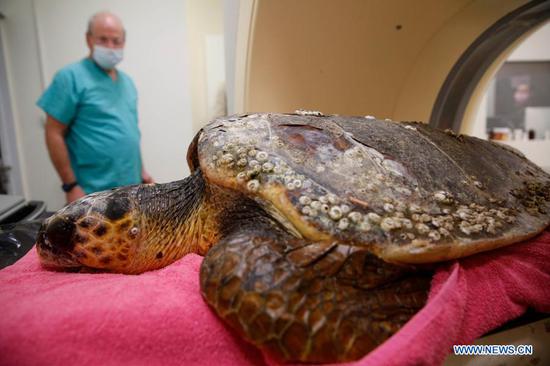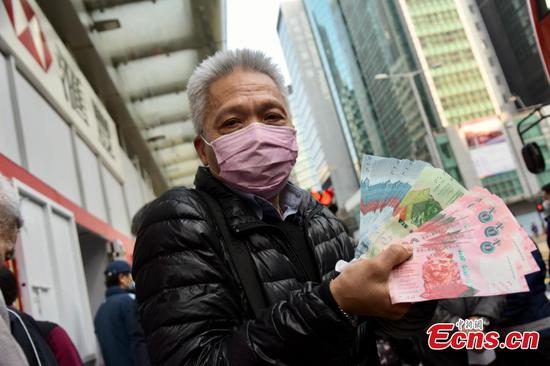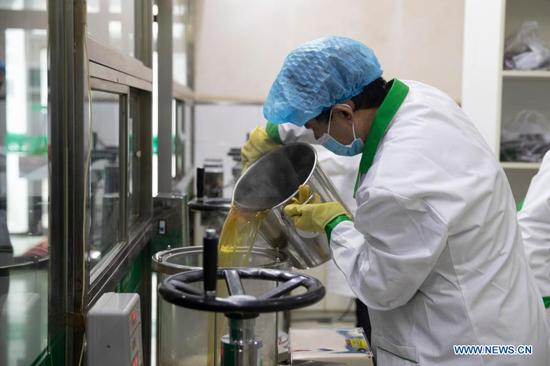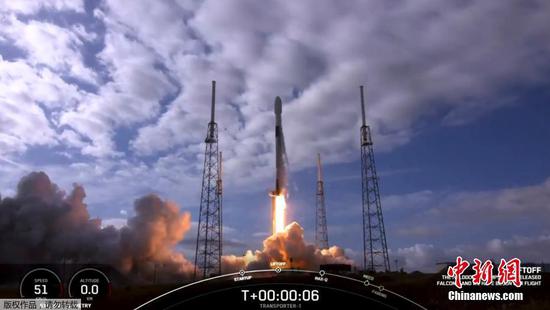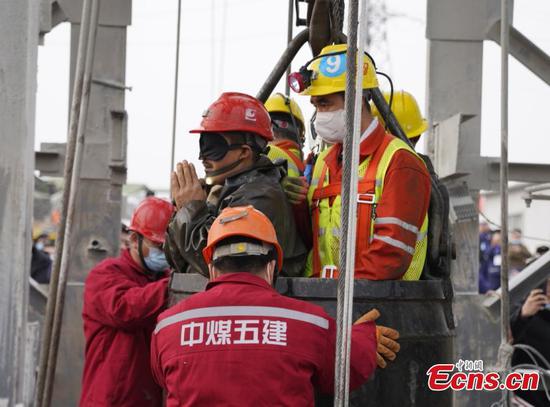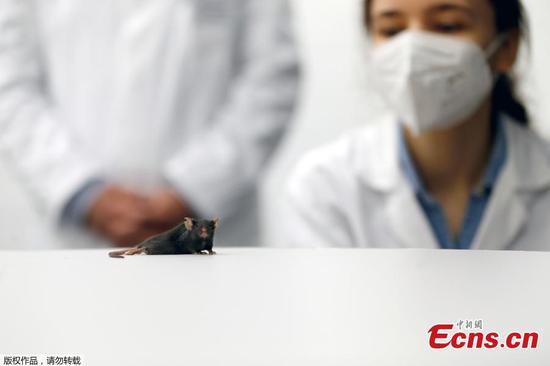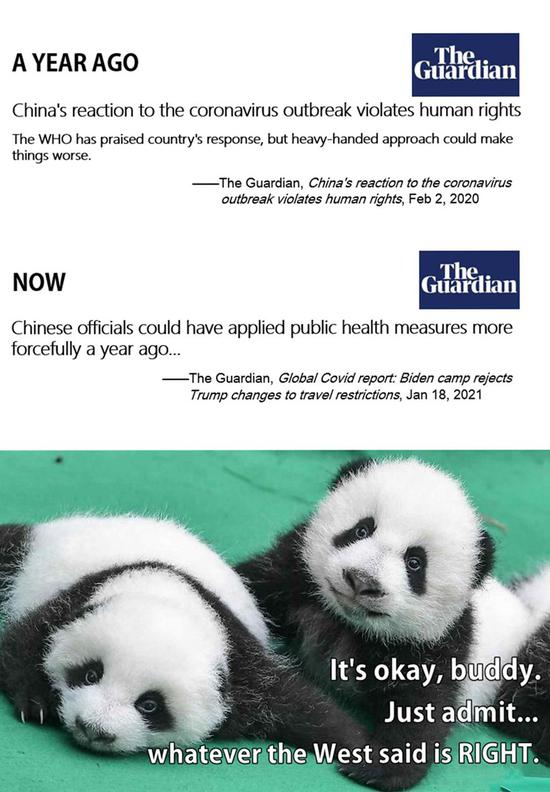The International Monetary Fund (IMF) on Tuesday projected that China's economy will grow by 8.1 percent in 2021, amid a partial and uneven global recovery, according to the latest update to its World Economic Outlook (WEO).
China returned to the pre-pandemic projected level in the fourth quarter of 2020, "well ahead of" other major economies, IMF Chief Economist Gita Gopinath said at a virtual press conference, noting that the strength of the projected recovery varies significantly across countries.
The multilateral lender projected that the global economy, which saw a 3.5-percent contraction in 2020, will grow by 5.5 percent in 2021, while cautioning "tremendous uncertainty."
Much now depends on the outcome of this "race" between a mutating virus and vaccines to end the pandemic, and on the ability of policies to provide effective support until that happens, Gopinath said.
KEY FACTORS FOR CHINA'S ROBUST REBOUND
China's National Bureau of Statistics recently reported that the country's gross domestic product registered a year-on-year growth rate of 2.3 percent in 2020, becoming the only major economy with positive growth in the pandemic-ravaged year.
China has also become the top destination for foreign direct investment (FDI). FDI flows to China rose by 4 percent to 163 billion U.S. dollars, making the country the world's largest recipient in 2020, followed by the United States, according to the latest report by the United Nations Conference on Trade and Development.
"China has been very successful in containing the pandemic and that has played a very important role to bring back activity much more quickly," Gopinath said in response to a question from Xinhua at the virtual press conference.
"There's been effective policy support provided both in terms of fiscal policy and monetary policy," she continued, adding that China's exports have also gone up in this environment.
Echoing Gopinath's remarks, Malhar Nabar, division chief at the IMF's Research Department, told reporters that China's policy support has been "a big driver" of its "impressive rebound" in 2020.
"The public infrastructure spending support, and also the support that was extended to affected households and to firms, reinforced by aggressive actions by the People's Bank of China to provide liquidity support and ensure that credit provision remains strong," Nabar said.
"Going forward, we see a gradual handoff to private sector activity, starting out with a pickup in private investment activity," he said. "That's in fact already been seen in the second half of last year, and we expect that to continue."
Nabar added that in order to secure the recovery path, it is "vitally important" for China to ensure that rebalancing towards private consumption continues and "perhaps even is accelerated to an extent, with efforts to strengthen the social safety net."
In 2022, China's economy is projected to grow by 5.6 percent, according to the WEO update. Global economy, meanwhile, is projected to grow 4.2 percent in the same year.
Noting that China is "the engine of growth" for the global economy for a while, Petya Koeva Brooks, deputy director of the IMF's Research Department, told Xinhua in a video interview Tuesday that she believes China has a very important role to play in the global recovery going forward.
"I think the fact that China is one of the producers of the vaccine and has been active and willing to also help others is an important thing," Brooks said, highlighting the significance for China to be one of the champions of global multilateral cooperation on the vaccine front.
China also plays a critical role in strengthening global supply chains, addressing climate change and resolving debt issues, said the IMF official.
"China can do a lot in terms of being again the catalyst or the champion for change at the global level," she added.
"We want to be a part of China's global growth. We think that we can contribute to China's global growth, make it more balanced, employ a lot of people, (and) bring good products," U.S.-China Business Council President Craig Allen told Xinhua in a recent video interview.
According to media reports, Joerg Wuttke, president of the European Union Chamber of Commerce in China, also emphasized that it is important for companies to participate in the Chinese market as the Chinese economy contributes 30 percent of global growth every year.
TREMENDOUS UNCERTAINTY IN GLOBAL RECOVERY
The projected global recovery this year follows a severe collapse in 2020, Gopinath said. Even though the estimated contraction of 3.5 percent in 2020 is somewhat less dire than the previously projected 4.4 percent contraction, it remains the worst peacetime global contraction since the Great Depression, she said.
Because of the partial nature of the rebound, over 150 economies are expected to have per-capita incomes below their 2019 levels in 2021, and the number will decline only modestly to around 110 economies in 2022, according the IMF.
"At 22 trillion dollars, the projected cumulative output loss over 2020-2025 relative to the pre-pandemic projected levels remains substantial," Gopinath said, adding that the strength of the projected recovery varies significantly across countries.
The Chinese economy has already reached the level of output that it had prior to the pandemic, while the United States and Japan are expected to reach the pre-pandemic level of output this year, Brooks said.
While the euro area as well as many emerging markets and developing countries will not reach this level until 2022, with some low-income countries even beyond that, said the IMF official.
The multilateral lender also urged governments to work together to accelerate access to vaccines for all countries, ensure universal distribution of COVID-19 vaccines at affordable prices and boost support especially for poorer nations.
"Having universal access to vaccines for all countries is something that is going to benefit everyone. This is where multilateral cooperation would be particularly important," Brooks said.
Faster progress on ending the health crisis will raise global income cumulatively by 9 trillion U.S. dollars over 2020-2025, according to the IMF estimation.
"There remains tremendous uncertainty and prospects vary greatly across countries," said Gopinath, who made the remarks on the same day as global COVID-19 cases topped 100 million, breaking another grim record.
Greater success with vaccinations and therapeutics as well as additional policy support could improve outcomes, while slow vaccine rollout, virus mutations and premature withdrawal of policy support can worsen outcomes, she said.
If downside risks were to materialize, a tightening of financial conditions could amplify the downturn at a time when public and corporate debt are at record highs worldwide, she said.
The IMF chief economist added that targeted economic lifelines to households and firms should be maintained where the virus is surging, and if policy space permits, resources freed up can be reallocated to education, digitalization and green investment to support the recovery.














